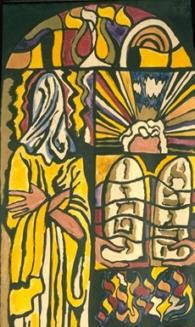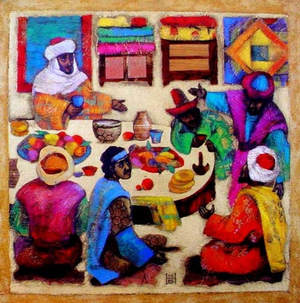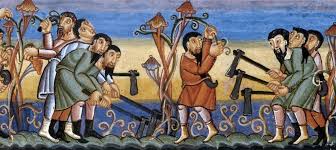
Me too. So declares countless women who took to social media last Monday in response to a request from actor, Alyssa Milano. Milano, a survivor of sexual assault from powerful Hollywood producer, Harvey Weinstein. She asked women who had similar experiences to step forward. To use the hashtag “#Me Too.” By Monday evening, “me too” was used 500,000 times on twitter, and generated over 6 million responses on Facebook.
Sadly, this is not the first time the “me too” phenomenon has surfaced. It began with the Black activist, Tarana Burke. Burke began the “me too” movement of empathy ten years ago, she said, to support “survivors of sexual abuse, assault, exploitation, and harassment in underprivileged communities who typically don’t have access to rape crisis centers or counselors.” Many women have come forward to denounce sexual misconduct not just in the film industry, but in politics, sports, media, academia, the military and law enforcement, healthcare within families and friendship circles, by strangers, even in the church. It seems no corner of human society is free of this sin. To seek to dominate and control other people, to treat them as objects for one’s selfish purposes and pleasure.
#Metoo is a movement to restore true identity. #Metoo is about self-disclosure in order bring healing, and ultimately restoration of community.
Today’s lesson, while not quite a #metoo moment, is about restoration and ongoing self-disclosure to bring healing and wholeness to the people of Israel. Last week if you recall, the new and growing relationship between God and God’s people was seriously breached as the people made and worshiped a golden calf.
This sort of behavior, idol worship, is viewed as a violation of the covenant that God created when God set down the commandment: “You shall not have any gods before me.” In the verses right before today’s lesson, God reacts to that Golden Calf moment. God is troubled. God is angry that the people have dismissed their covenant so readily. God calls them stiff-necked, or stubborn. God refers to them as Moses’ people. God says Moses led this people out of the land of Egypt. God declares that he can no longer accompany them, but will send an angel to guide them in place of God’s presence. The people then mourn and repent, and return back to the worship of the one, true God.
When this happens, we see in today’s passage that Moses and God enter into a deep conversation about restoration through a process of mutual self-revelation. This conversation reestablishes a personal relationship through knowing through naming, finding favor, presence, to go with, the experience of glory, where the goodness, graciousness and mercy of God is revealed. God forgives, and an intimate, sacred relationship is restored. An intimate, alive, developing relationship with God is the foundation for authentic, loving relationships between people and in communities.
Let’s step back a minute. We have been following the book of Exodus for a number of weeks in our lectionary readings. From the saga of slavery, to leaving, to journey into the wilderness, we see over and over that God initiates relationship. Each step of the way, we see God self-reveals in an ongoing fashion. Through God’s self-revelation, the sacred texts teach us to authentically self-reveal to relate freely and lovingly with each other. So, let us review the story.
Do you remember the powerful story when God first calls Moses in the Burning Bush? God seeks out Moses. God discloses Godself as “I am the God of your ancestors, Abraham and Sarah, Isaac and Rebekah and Jacob and Leah and Rachel” (Ex. 3:6, 15). God reveals that God is in our past, calling us to enter history. Without history as our context, we would be adrift. Remember George Santayana’s observation that “Those who cannot remember the past are condemned to repeat it?” The first step to freedom and intimacy is knowledge of our past. So, God seeks to reconnect us, to the good and not so good, to history. Moses too is able to face his past and return to Egypt to declare God’s message: “Let my people go!”
As Moses prepares to encounter Pharaoh in the mission of freedom, God self-reveals once more and gives his name: Yahweh – which translates “I am who I am” or “I will be who I will be.” This name reveals God is not just a relic of the past, but also a God of our present, and will continue always to be present as we journey to the unknown future. Moses carries out his dangerous task because God self-reveals as a Opposer of Slavery and Restorer of Freedom. If we want to find where God is, we look where there is bondage and enslavement in ourselves, and around the world. There God seeks to bring forth freedom.
God frees the people of Israel and leads the people to Mount Horeb in the wilderness. There God gives the Law in order for them to enter into right relationship with God. This enables them to be in right relationship with each other. As the ten commandments are revealed as a foundation of a caring community, God gives a new name: God says, “I am Yahweh your God, who brought you out of the land of Egypt out of the house of slavery” (Ex. 20:2). God self-reveals God-self and seeks to be known by God’s ongoing deeds to liberate the people. As God opposes slavery, God choses to be known by freeing people. So God declares, “I am the Lord their God, who brought them out of the land of Egypt in order that I might live among them” (Ex. 29.46). In addition to being a God who hears the cries of the enslaved, God frees so that God can live with God’s people. God gives the laws and the sanctuary in the wilderness in order to be intimately connected, through daily living and ritual to forge a mutual covenant that creates freedom.
So, in today’s lesson, God seeks restoration after rupture of relationship from the golden calf experience. To do this, Moses asks God to know God’s ways for deeply (Ex.33:13). Moses seeks to experience God glory (Ex. 33:18) once more. Moses wants to hear God’s name (Ex.33:19). Moses calls for assurance of God’s goodness (Ex. 33:19). Israel can only be healed through coming into deeper connect with God – the God who will be who God will be, declares “I Will be gracious to Whom I will Be Gracious, and I will Show Mercy on Whom I will Show Mercy” (Ex.33:19). God is gracious and merciful, but will not be pinned down, cannot be fully known. The passage teaches us that healing of our brokenness comes seeking to know God’s ways more deeply, entering God’s glory, and by pursuing the goodness, gracious and mercy of God.
God reveals God’s self in the midst of the people’s journey. They get to see, as time goes on that God is responsive to the changes of life. We see God reveals God self in the most connecting way possible, through Jesus, who teaches us to give first to God what is God’s. God calls to our past, our present, and to our future to establish connection with us, and within us.
What if we had a similar Church version of a “me too” movement to share our strengths and woundedness? What if church community was a safe community to share and recover? Could we be a movement to build a whole, caring, intimate faith community? A community that stands with each other and affirm the goodness of one another?
Let us seek out the sacred path of self-revelation, so God’s presence with us deepens as we strive to live authentically with one another. In this way, God challenges us to a life of “metoo”: to make our lives reflect this God of our past, our present, our future. Our God, Freer from all slavery, Covenant bringer, Self-Revealer, Jesus Immanuel, who lives with us, walks with us, face to face, in favor, in glory, in graciousness and mercy. Amen
http://www.workingpreacher.org/preaching.aspx?commentary_id=1012
http://www.workingpreacher.org/preaching.aspx?commentary_id=3445
https://qz.com/1105615/metoo-the-movement-was-actually-launched-10-years-ago-by-a-black-activist/



 RSS Feed
RSS Feed